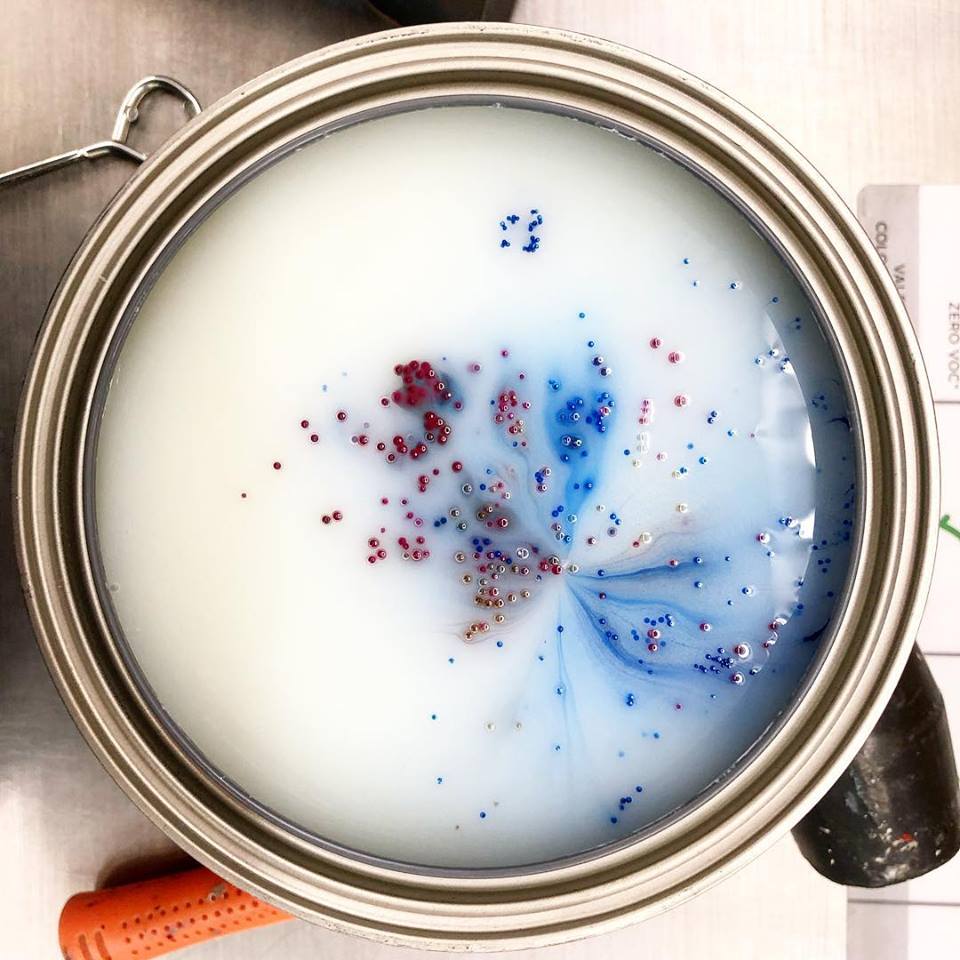
I.
The first angel arrives dressed in yellow. I can’t stop looking at her face. She rises from the sidewalk at the crest of Sacramento and Buchanan grinning, mouth cracked open, upturned to the sky. She’s around my age, it looks like, which means she is more old than young. Not old enough, however. Never old enough.
I watch as I climb Sacramento; she doesn’t notice me. Her shape emerges as if by unfolding: head—hair translucent, skin pale but streaked with color, couple of loose lines—then shoulders, yellow gown and wrap, bare legs encased in yellow socks. She is using an aluminum walker for balance as she spins a slow pirouette. That’s when I catch sight of the hospital, which stretches back from the corner like a monolith. She is near the sliding front doors.
And I don’t want to be rude or intrusive, but I recognize what I see. Human being, in sick garments before the pesthouse, on permanent, or temporary, reprieve. Reflexively, I conjure a story—surgical survivor, at risk of death but also fully present, in this spot at this moment, alive and porous, taking in everything. Those eyes, wide, they are holy, I don’t know how else to say it: beatific, like a saint. A saint, yes, or an angel, although we are not in the City of Angels, city of Saint Francis instead. Francis was forty-four when he died 792 years ago, pierced by stigmata.
He is the patron saint of not dying alone.
II.
The second angel arrives dressed in pressed slacks and a long-sleeved shirt, flat shoes on her feet. She appears fully formed in the elevator of the medical building where my wife has just been told she needs a second surgery on her left knee. We are on the third floor, and my wife is barely on this side of weeping. Come on, I coax, in an attempt to be consoling, that scar, it’s a badge of honor. It means you’re a warrior.
The elevator door slides open as we’re talking. The angel stands within. We step inside and continue our conversation, my wife saying she is tired, that she can’t bear another setback, that she has had enough. Since March, she mourns, I’ve been in pain since March. She shrinks into a corner of the car. I look at her, face shuttered, downturned. This is when the angel starts to speak.
I’ve got a scar too, she announces, from a caesarean. I got it giving birth to my son. Briefly, I wonder if she is going to lift her shirt to show us, but the moment passes; instead, she is merely pausing for a breath. That scar, she goes on, you earned it. My wife flashes a wan smile, offers thanks. Every day, the angel whispers, each time I get dressed, my scar reminds me of what I have been through. It reminds me of who I am.
Stigmata, I imagine, as the elevator ticks down, past the second floor.
III.
The third angel arrives dressed in maroon skirt and gray t-shirt, white hair in a thick ponytail. She, too, looks around my age. I am trying not to stare as she lurches across the outdoor plaza of the museum court behind a different sort of walker, one that unfolds into a chair. Her movements are blunt, blocky, expression etched into a grimace that may be more the face of effort than despair.
I am visiting the museum with my parents, who are aging. I wonder if their reason has begun to slip. A minute ago, my father suggested we take a table where a young man is waiting; he did not understand when I said we could not. The angel, meanwhile, is sitting now with her companion, eating ice cream on a stick beneath the summer sun. Her eyes are raw as if from trauma—runny egg whites striped with blood.
And I can see myself, my wife, in her features. She looks like someone we might know. That skirt, my wife has one not unlike it. When she wears it, her surgical scar emerges from beneath the hem. Again, I tell myself a story about what’s happened, although this time, the subject is less redemption than its antonym. Surgery, side effects, the deterioration we all pretend will not belong to us. Suddenly, the woman leans forward, gaze electric. When she stands, her skirt is streaked. Urine, stigmata, angel in her temporary body.
She is the patron saint of everyone.
__
David L. Ulin is the author or editor of ten books, including Sidewalking: Coming to Terms with Los Angeles, which was shortlisted for the PEN/Diamonstein-Spielvogel Award for the Art of the Essay. A 2015 Guggenheim Fellow, he teaches at the University of Southern California.
Photo by Elizabeth Fackler

6 comments
Elaine Jesmer says:
May 13, 2019
Beautiful. Except for the fact I couldn’t read the first paragraphs because they weren’t aligned with the rest of the story.
Dinty says:
May 13, 2019
Are you trying to read this on a phone, a tablet, what browser? Unfortunately, screen size, browser, and text settings all differ from device to device, and sometimes problems crop up, but the piece looks good where we are sitting.
Westrene says:
May 13, 2019
Lovely and evocative. We’re all either dealing or in denial.
Kurt says:
May 13, 2019
Thank you and thank you
Linda Ruggeri says:
May 14, 2019
Another great piece by #DavidUlin. Superbly written, superbly edited. An excellent work in “form.” Beautiful moment, and one we will all become familiar with sooner or later.
Susan Henderson says:
May 17, 2019
David, This is beautiful.